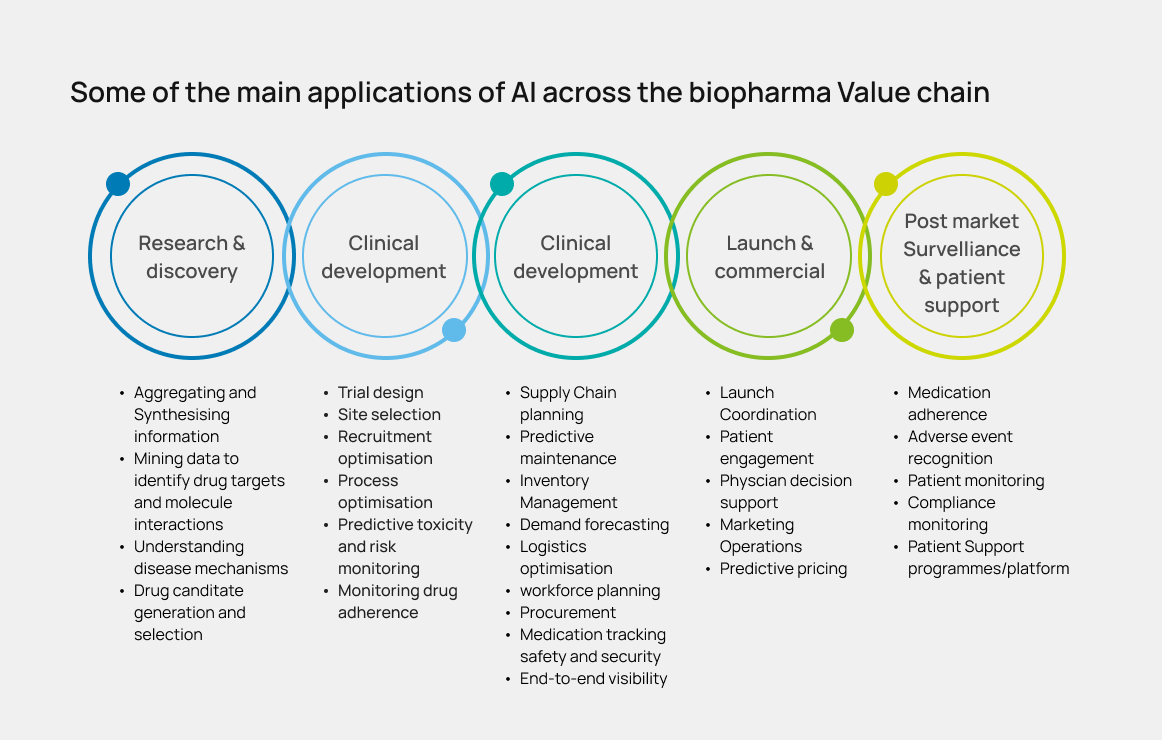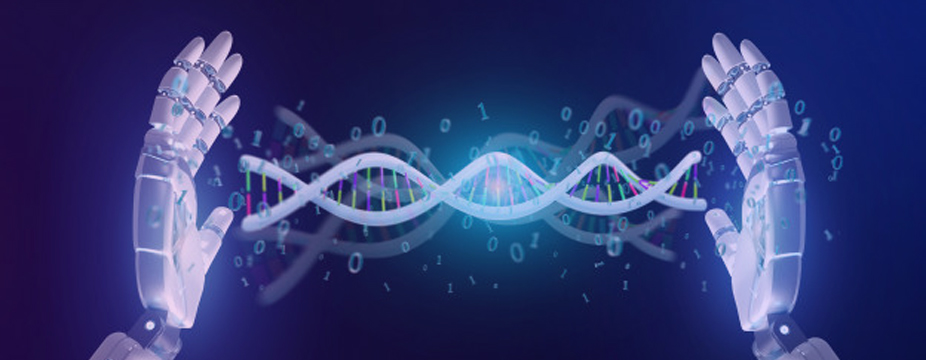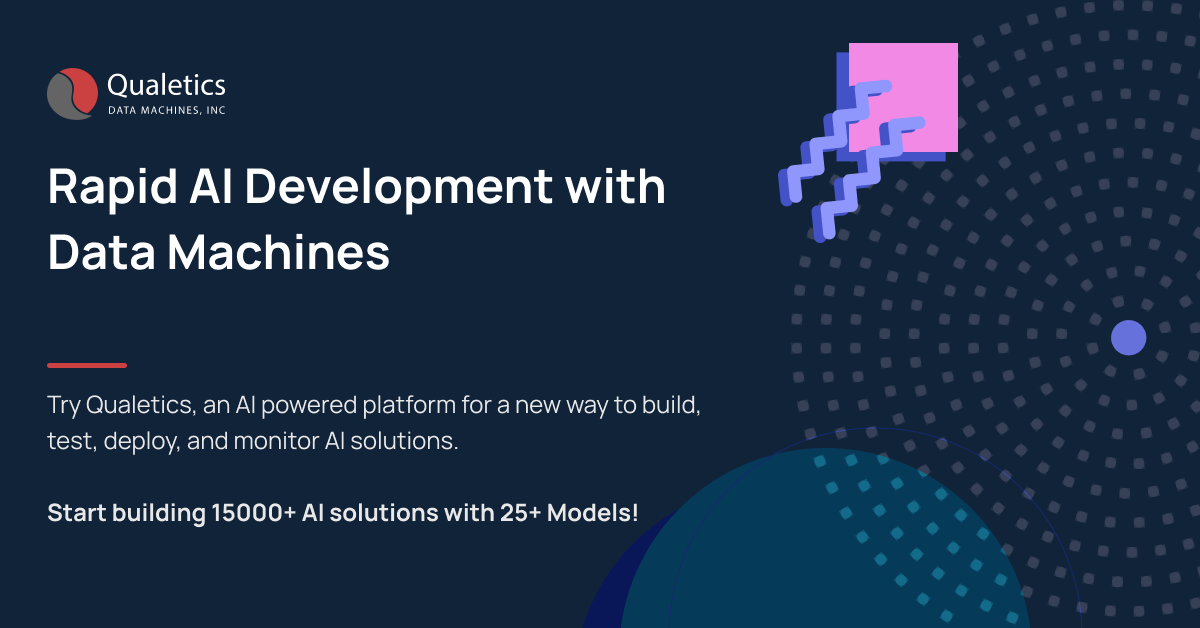AI In Biotechnology – Exploring Role And Applications
AI or Artificial Intelligence can have a transformative impact on biotechnology. There are many areas where biotech companies can leverage AI to enrich their processes, drive innovation and explore new business models.
The pace for innovation is accelerating in the biotechnology industry and Biotechnology companies are now realizing the value that AI can bring to their entire business, in the form of –
- Accelerated R&D
- Analysis of humongous databases
- Effective decision-making
- Cost-effectiveness
While PricewaterhouseCoopers estimates that Artificial Intelligence will contribute to the global output with USD15.7 trillion by 2030, a survey of pharma and life sciences experts revealed that 44% were using Artificial Intelligence in their R & D activities.
Artificial Intelligence in Biotechnology
Biotechnology can be categorized into a few types like agricultural biotechnology, medical biotechnology, animal biotechnology, industrial biotechnology, and bioinformatics. Let us see how Artificial Intelligence is impacting these branches of biotechnology.

AI in Agricultural biotechnology
Agricultural biotechnology develops genetically modified plants to increase crop yields or introduce new characteristics to the existing plants. It involves conventional plant breeding, tissue culture, micropropagation, molecular breeding, and genetic engineering of plants.
Biotechnology firms are now leveraging Artificial Intelligence and Machine Learning techniques to develop and program autonomous robots that handle important agricultural tasks like harvesting crops at a much faster pace than humans. Computer Vision and Deep Learning algorithms are leveraged to process and analyze the data captured by drones. This helps in monitoring crop and soil health. Machine Learning algorithms help in tracking and predicting various environmental changes like the weather changes that impact the crop yield.
AI in Medical biotechnology
Medical biotechnology uses living cells for the betterment of human health by producing drugs and antibiotics. It also involves the study of DNA and genetically manipulates the cells to increase the production of important and beneficial characteristics.
Artificial Intelligence and Machine Learning are extensively used in drug discovery. Machine Learning helps in discovering small molecules that could give therapeutic benefits dependent on known target structures. Machine Learning is widely used in diagnosing diseases as it uses the true result to improve the diagnostic tests i.e., the more diagnostic tests that are run, the more accurate results can be achieved. AI is also helping in reducing the radiation therapy planning process resulting in saving time and improving patient care. Another area where Artificial Intelligence and Machine Learning are proving to be promising include enhancing the EHRs with evidence-based medicines and clinical decision support systems. Apart from the above-mentioned applications, these technologies are widely used in gene editing, radiology, personalized medicine, medication management, etc.
AI in Animal biotechnology
This branch applies molecular biology techniques to genetically engineer/modify the animals to improve their sustainability for pharmaceutical, industrial, or agricultural purposes.
The breeding of animals is one area where Artificial Intelligence and machine learning models provide valuable insights. Selective breeding is a very common practice where animals with the most desirable characteristics are bred with each other so that their offspring will also result in the same traits. This practice is implemented on the molecular level too where genetic characteristics among the animals are selected and such animals are bred. Machine learning is being used to interpret large genomic data sets and annotate a wide variety of genomic sequence elements.
AI in Industrial biotechnology
Industrial biotechnology is all about biopolymers substitutes, the invention in various areas like vehicle parts, fuels, fibers, new chemicals, and the production process.
Internet of Things (IoT), Machine Learning, and Artificial Intelligence analyze the machines, predict outages, optimize equipment, etc to provide efficient production and better product quality. Computer-aided designs and Artificial Intelligence are coming up with the desired molecule design. Robotics and Machine Learning cultivate the strains and test to what extent the desired molecule was reached.
AI in Bioinformatics
Bioinformatics helps the acquisition, storage, processing, distribution, analysis, and interpretation of biochemical and biological information with the help of mathematical, computer science, and biology tools to understand the biological significance of a variety of data. This information is organized in large data pools.
This information needs to be harnessed to gain tremendous insights. Artificial Intelligence and Machine Learning are leveraged in DNA sequencing from the huge data crunch involved, classification of protein along with protein’s catalytic role and biological function, analysis of gene expressions, genome annotation where a certain level of automation is required to identify the locations of genes, computer-aided drug design, etc.
The use of AI in biotechnology is still in its infancy, but the time to invest is now. AI is a critical capability for biotech companies in the short as well as long term. The huge surge in the adoption of Artificial Intelligence in the biotechnology sector indicates that it can be applied to a large variety of processes, workflows, as well as strategies used to gain a competitive edge. If your Biotechnology company is exploring when, where, or how to leverage AI, Qualetics, our AI Management System(AIMS) can help you quickly build and scale AI in your organization. To know more about Qualetics, Book a Demo.


